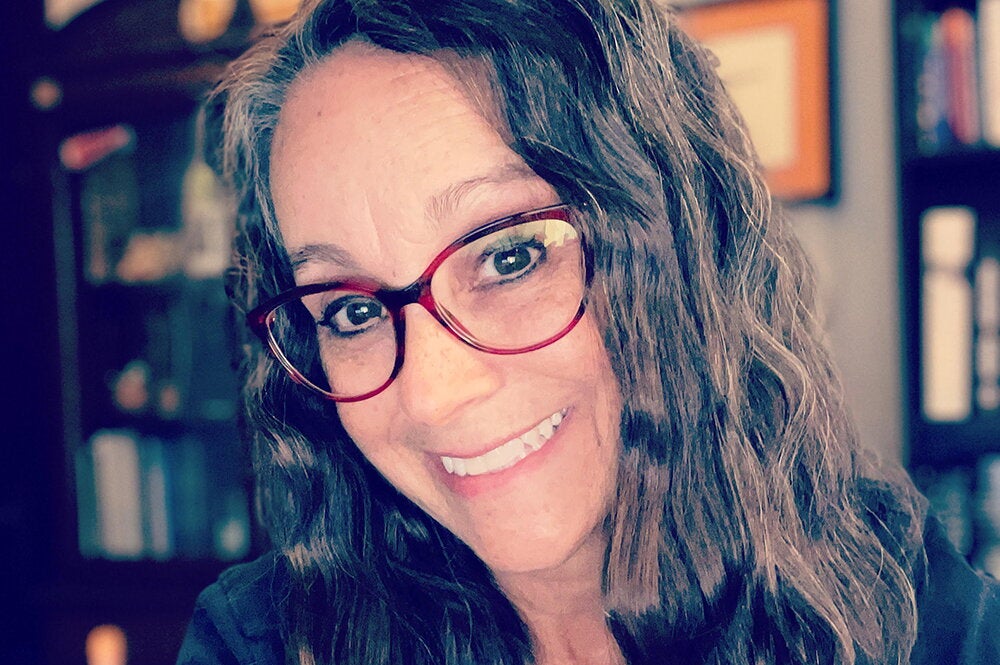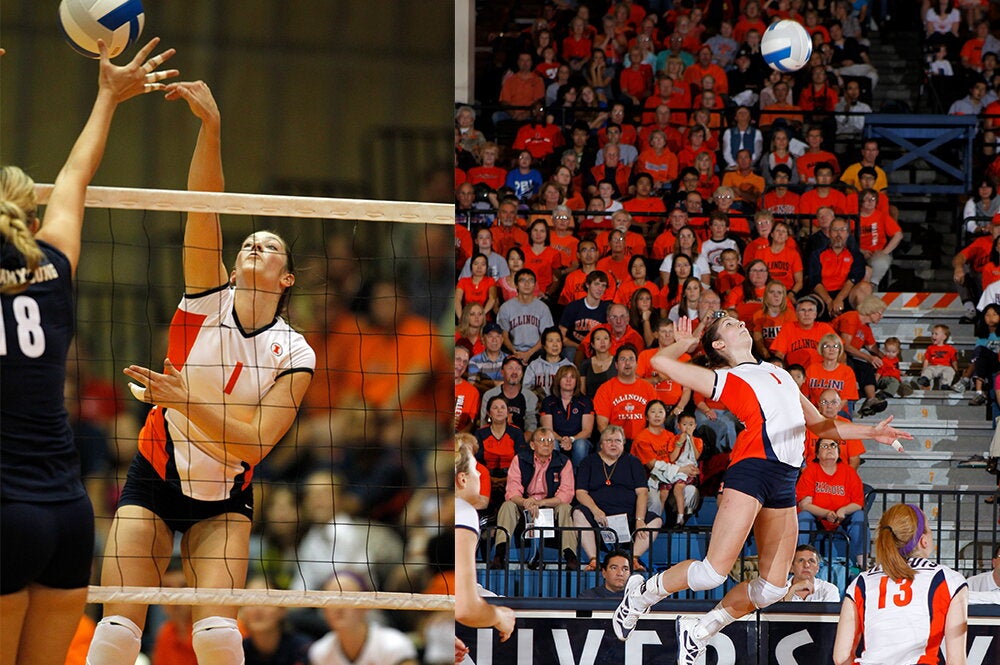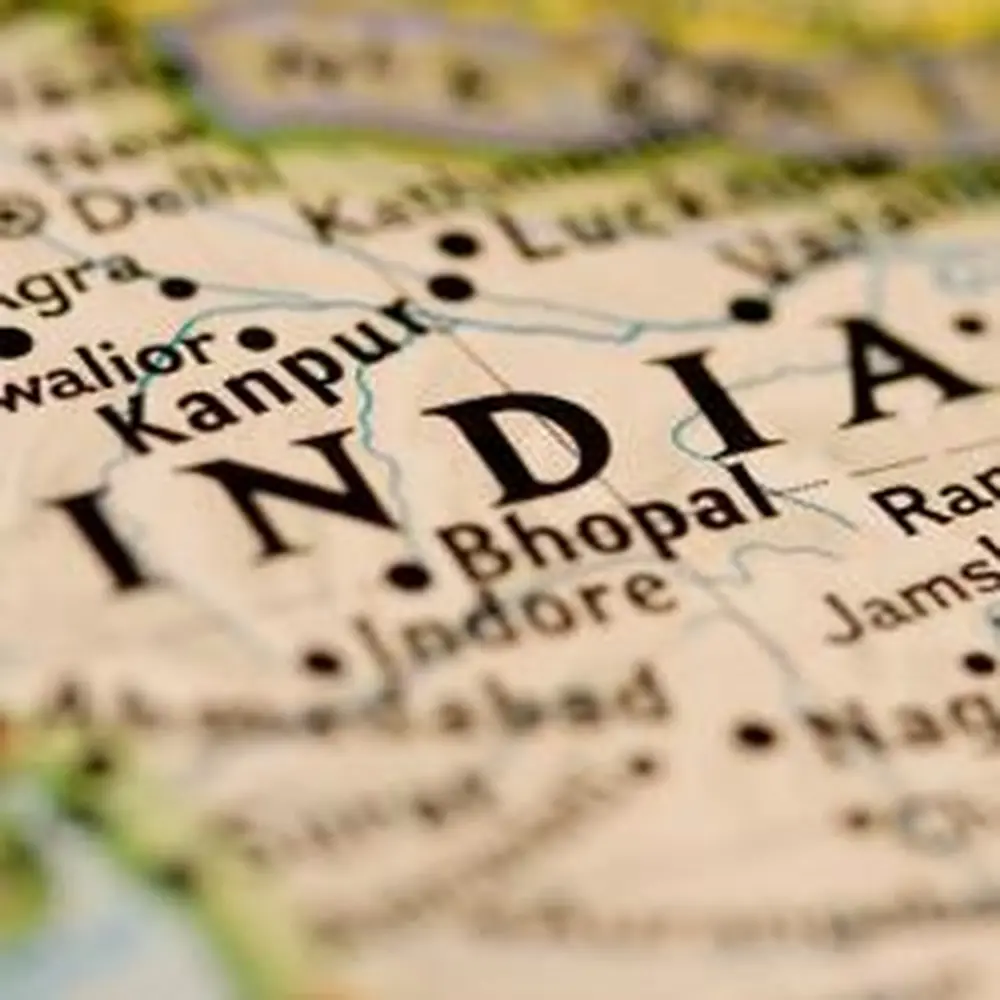
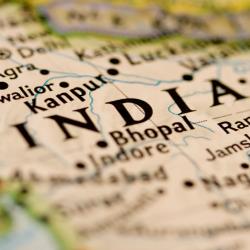
During college Michael Newbill developed a fondness for the dynamic cultures of South Asia that never quit. The question was how to make a career of it. The answer was the State Department.
Newbill, 36, is a diplomat at the U.S. consulate in Mumbai, India, where he serves as chief of political and economic affairs. Cast aside any preconceived notions of a diplomat’s life; Newbill has done everything from consulting U.S. legislators on Indian views of climate change to settling labor disputes to reacting to a terrorist attack.
He represents the U.S. government in a complex place that’s captivated him for years. His interest in India grew in LAS, where he double-majored in English literature and history, specializing in the Middle East and South Asia. After graduation in 1994, Newbill studied in India for a year under a Rotary scholarship before returning to earn a master’s degree in South Asian history at the University of Wisconsin.
During the summer of 1996, the St. Charles, Ill., native returned to South Asia as an intern at the United States Embassy in Sri Lanka. He eventually chose the foreign service as a career, and in 2000 he was hired by the State Department and sent to the Philippines. His second assignment was Thailand, and his third was covering U.S. and Indian economic affairs in Washington. In 2007 he was assigned to Mumbai, where he serves as a link between American and Indian policymakers until at least 2010.
Newbill and his wife, Angeline, live in an apartment off consulate grounds in the city of more than 16 million. South Asia is overpopulated, busy, and noisy, he says, and the sprawling slums of Mumbai depicted in the award-winning movie Slumdog Millionaire are no exaggeration. Nonetheless, Mumbai is a special place.
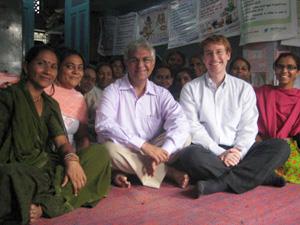
“It’s one of the most complicated and interesting places in the world,” Newbill says. “Indians are incredibly friendly, they’re very inclusive, and they want to share their life and world with you very often. And I think that’s not always the case in many countries that you go to.”
One day last November, Newbill was heading home from a talk by an American speaker when he heard of gunshots in the city. When he turned on the TV he saw news coverage of terrorist attacks that killed more than 170 people and stunned the world. By chance the violence missed him. Newbill had arranged to meet a friend at the Leopold Cafe, a popular spot for Westerners in the city, but his friend came down sick. If he hadn’t, they would have likely been there when terrorists attacked the eatery with guns and grenades, killing seven people.
For days Newbill worked to gather accurate information about the attacks, which proved no easy task as rumors abounded. Some Americans were stranded in hotels that came under attack, and the consulate reached almost all of them by cell phone. Afterward, the consulate helped Americans get home, or, in some cases, identify victims. Six Americans were killed in the attacks and the consulate notified families and helped get the bodies home.
In the aftermath Indians were terrified and outraged at the response by their authorities. Several senior politicians lost their jobs. Daily life has returned to normal, Newbill says, but there are changes even on a diplomatic scale. India has become very cooperative with American law enforcement, he says, and the FBI has worked closely with Indian police to investigate the attacks.
Newbill remains pleased with his assignment. Despite setbacks—the number of American travelers to Mumbai, which had been on a slow rise, initially dipped after the attacks and economic recession hit—he feels that he’s on the cusp of what’s becoming a fruitful international relationship.
“I think there are a lot of shared values between India and the United States that you don’t often see,” he says. “There’s a tremendous amount of growing ties between India and the United States, and a lot of it is outside the government.”
It’s not just the diplomats who see deep connections. Newbill recently assisted as a large American delegation of members of Congress, Martin Luther King III, and others visited Mumbai earlier this year. The occasion was the 50th anniversary of Martin Luther King’s visit to India, where he traced the path of another well-known humanitarian who shaped his views—Gandhi.
